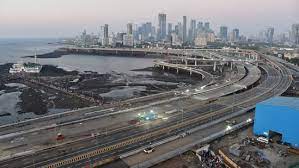The Ministry of Road Transport and Highways has introduced stricter safety measures for contractors working under the build-operate-transfer (BOT) model. According to a senior official quoted by PTI, contractors will now face hefty fines if multiple accidents occur on the same highway stretch within a year.
“If more than one accident happens within a 500-meter stretch in a year, the contractor will be fined ₹25 lakh. If an accident occurs again in the following year, the penalty will rise to ₹50 lakh,” said V Umashankar, Secretary, Road Transport and Highways.
He explained that the BOT agreement has been revised to hold contractors accountable for safety lapses. Builders must take preventive measures and address any issues promptly if accidents recur on their assigned stretches.
The highways ministry has also identified 3,500 accident-prone zones across India as part of its broader effort to enhance road safety.
Different Models of Highway Construction
National highway projects in India are executed under various models:
- Build-Operate-Transfer (BOT): Concession and maintenance period lasts 15–20 years.
- Hybrid Annuity Model (HAM): Maintenance period is around 15 years.
- Engineering Procurement and Construction (EPC): Defect liability is 5 years for bitumen roads and 10 years for concrete roads.
- Toll-Operate-Transfer (TOT) & InvIT Projects: Concession period ranges from 20–30 years.
- Operate-Maintain-Transfer (OMT): Typically lasts nine years.
Nationwide Cashless Treatment Scheme for Accident Victims
The government is also preparing to launch a nationwide cashless treatment scheme for road accident victims, following insights from a successful pilot project.
Under this scheme, victims will receive cashless medical treatment up to ₹1.5 lakh for the first seven days at designated hospitals, as per the Ministry of Road Transport and Highways’ May notification.
“Any person involved in a road accident will be entitled to cashless treatment as per the scheme’s provisions,” the ministry stated.
The initiative aims to reduce fatalities caused by delays in emergency medical care. Initially launched in March 2024 in Chandigarh, the pilot program has since been expanded to six other states.

